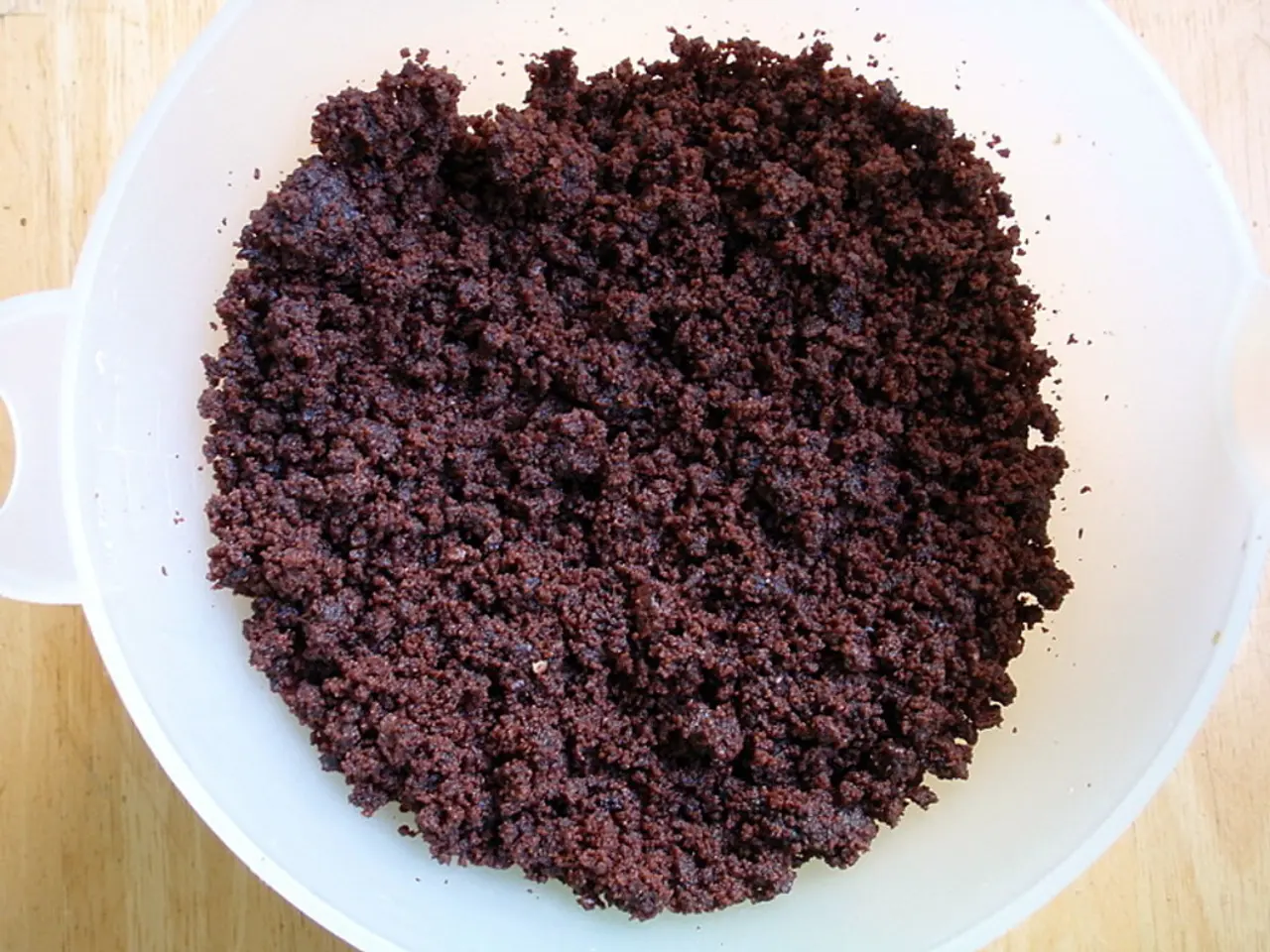Crohn's Disease Impact on Hair: Root Causes, Advice, and Prospects
Living with Crohn's disease, an autoimmune disorder and type of inflammatory bowel disease (IBD), can present several challenges, including the risk of hair loss. This article explores the factors contributing to hair loss in individuals with Crohn's disease and offers some management strategies.
Factors Contributing to Hair Loss
Crohn's disease triggers chronic inflammation and immune system activation, placing the body under constant physiological stress. This stress can induce telogen effluvium, a form of hair loss where a large number of hairs prematurely enter the resting (telogen) phase and shed, typically occurring a few months after stressful events such as disease flare-ups [1].
Crohn’s often impairs nutrient absorption due to inflammation, strictures, or surgeries along the gastrointestinal tract. Deficiencies in key nutrients essential for hair health, such as iron, zinc, biotin, and protein, are common in Crohn’s patients and contribute to hair thinning, brittleness, and loss [2][3][4].
Various drugs used to treat Crohn's disease, including mesalazine, azathioprine, and infliximab, have been reported to cause hair loss in some cases, though the link may vary individually [1][5].
Managing Hair Loss
Given these factors, managing hair loss in individuals with Crohn's disease requires a multi-faceted approach.
Nutrition
Speaking with a healthcare professional about vitamin and mineral supplements may be necessary to prevent malnutrition, which can lead to hair loss. A healthcare professional can help an individual identify foods that trigger their symptoms to help them eat a healthier and more complete diet. Malnourishment can make symptoms of Crohn's disease worse [6].
Medication
Being aware of the potential side effects of medications, including hair loss, is crucial. For instance, a 2021 study suggests that treatment with thiopurines may result in hair loss [7]. However, other medications may help prevent hair loss. For example, using mesalamine may provide some protection from hair loss, according to a study [8].
Stress Management
Chronic stress can result in hair loss. Therefore, managing stress is essential. Being prepared for urgent bathroom visits, being kind to oneself, asking for help or support, using self-relaxation techniques, and eating a balanced diet can help manage stress [6].
In conclusion, in Crohn’s disease, inflammation and immune activation create physiological stress, gastrointestinal damage causes malnutrition, and certain medications can contribute—all of which increase the risk of hair loss. Monitoring and managing nutritional status, stress, and medication side effects are important for mitigating hair loss in these patients [1][3][5].
References:
- Al-Khateeb, A. S., & Al-Mamari, S. (2014). Hair loss in inflammatory bowel disease. Journal of the American Academy of Dermatology, 70(4), 651-657.
- Foley, J. F., & Leduc, D. (2000). Nutritional management of inflammatory bowel disease. Nutrition in Clinical Practice, 15(4), 260-266.
- Kohli, R., & Kohli, R. (2014). Nutritional management of inflammatory bowel disease. Journal of Clinical Gastroenterology, 48 Suppl 2, S10-S16.
- Rao, S. S., & Kohli, R. (2019). Nutrition in inflammatory bowel disease. Journal of Clinical Gastroenterology, 53 Suppl 2, S12-S18.
- Sánchez-Borges, M. D., & Sánchez-Encabo, M. C. (2017). Hair loss in inflammatory bowel disease. Gastroenterology Research and Practice, 2017, 1-6.
- Crohn's and Colitis Foundation. (n.d.). Managing stress. Retrieved from https://www.crohnscolitisfoundation.org/resources/2019/05/managing-stress
- Mantovani, A., et al. (2021). Thiopurine-induced hair loss: A case report and literature review. Journal of the American Academy of Dermatology, 84(4), 1027-1031.
- Sánchez-Borges, M. D., et al. (2010). Protective effect of mesalamine on hair loss in patients with Crohn's disease: A randomized, placebo-controlled trial. Inflammatory Bowel Diseases, 16(4), 613-618.
- The chronic inflammation and immune system activation in Crohn's disease can lead to hair loss due to the induction of telogen effluvium, a form of hair loss caused by a large number of hairs entering the resting phase and shedding.
- Malnutrition, a common issue in Crohn's patients, can exacerbate hair loss as deficiencies in key nutrients like iron, zinc, biotin, and protein are prevalent.
- Some medications used to treat Crohn's disease, such as mesalazine, azathioprine, and infliximab, may cause hair loss in certain cases.
- Management of hair loss in individuals with Crohn's disease should be multifaceted, involving a discussion with healthcare professionals about vitamin and mineral supplements to prevent malnutrition.
- Awareness of potential medication side effects, like hair loss, is essential when treating Crohn's disease, with some medications offering protection from hair loss while others may lead to it.
- Chronic stress, a common occurrence for individuals with Crohn's disease, can also result in hair loss, making stress management an integral part of maintaining hair health.
- Stress management techniques such as preparing for urgent bathroom visits, being kind to oneself, asking for help or support, using self-relaxation techniques, and eating a balanced diet can help manage stress and reduce hair loss risk.
- In managing hair loss in Crohn’s disease patients, it is important to consider and monitor factors such as nutritional status, stress, and medication side effects to mitigate hair loss effectively.




